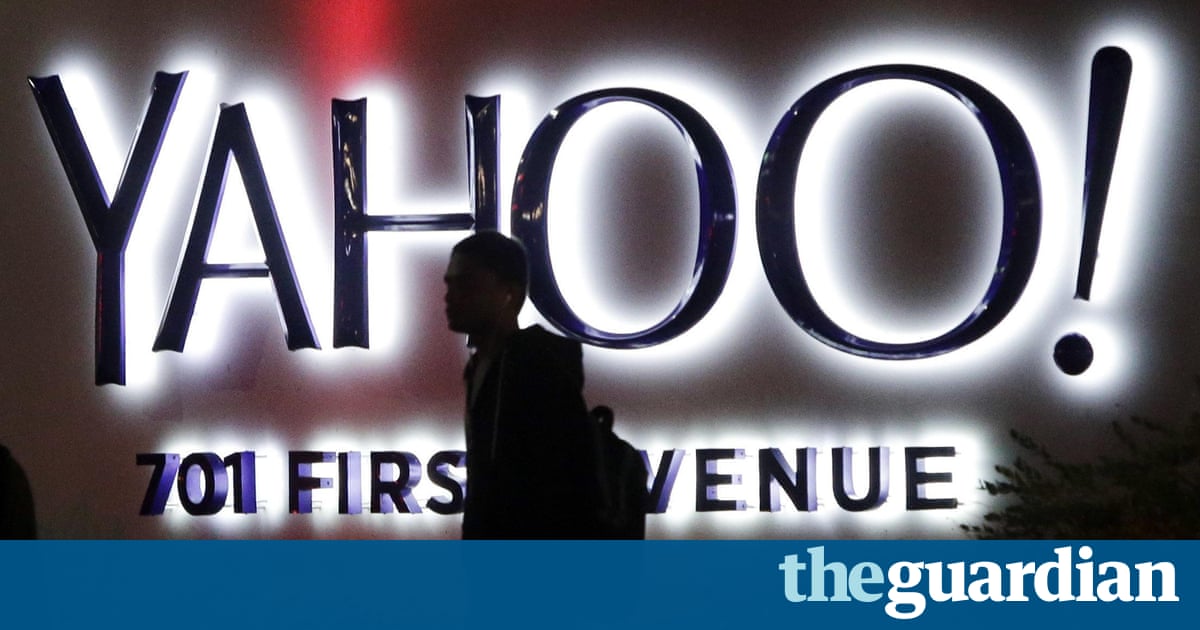As the internet company sells its core web business to Verizon, we take a look back at AOL, Myspace and other faded firms

Yahoo on Monday joined the elephants graveyard of fallen internet giants. While the company is officially still alive, now merged with fellow faller AOL and owned by Verizon, it lives on as a shadow of its former self with an uncertain future. The internet has proven a ferocious testing ground for tech companies. Here are some of the other once white-hot companies that have failed to adapt and survive.
AOL
How the mighty have fallen: the company that taught millions about dial-up internet and introduced them to email was the hottest name in tech when it merged with the media powerhouse Time Warner in January 2000. That deal proved one of the worst in history. AOL, once worth $226bn, was acquired by Verizon last year, for $4.4bn.
AltaVista
The reigning internet search company before Google, AltaVista ping-ponged around the tech sector over five years and had as many owners. It attempted a share sale in 2002, after the dotcom bubble had burst, but was forced to cancel due to lack of interest. Its final buyer? Yahoo. Yahoo closed Altavista in 2013.
Netscape
Once upon a time, there were two browsers locked in an eternal battle for market share: Internet Explorer and Netscape Navigator. Both are gone now, Microsoft having announced a new browser Edge that will supersede Explorer. For its part, Netscape was the scrappier, savvier, open-source browser, the brainchild of Marc Andreessen, now a billionaire investor, who had also co-authored the very first wide-use web browser, Mosaic. AOL bought Netscape in 1998 and eventually shut down the company but its spirit survives in Mozilla, which develops the current leader in open-source browser software, Firefox.
Myspace
The billionaire Viacom chairman, Sumner Redstone, fired the companys CEO, Tom Freston, for failing to acquire Facebooks major competitor ahead of Redstones nemesis, Rupert Murdoch. He should have given Freston a bonus. News Corp paid $580m for the less adroit social network, then approaching 100m users, in 2005. In 2011, News Corp sold Myspace for $35m and it is now largely a music site.
Napster
In an era when CD sales ruled the music world, Napster offered a preview of the future: digital music for free. The record industry decided to sue just about everyone involved in the online music sharing site and eventually won with a court injunction in the A&M Records v Napster case in 2001. But the damage was already done. The music industrys golden days of high-profit music sales have given way to a leaner, meaner digital future.
Pets.com
Plenty of companies on this list are victims of failing to adapt quickly enough to technology or the law, but Pets.com may be the only one that was almost purely a creation of the stock market. Given the outsize valuations of tech startups at the moment, Pets.coms $300m infusion of cash before its disastrous IPO seems almost quaint by comparison (Snapchat is supposedly worth $20bn), but at the time it was unprecedented. The company went public in February 2000 at $11 per share; by the time it announced its liquidation in November of the same year, the price had fallen to 19 cents.
Read more: www.theguardian.com




![[Video] How to get rid of bed bugs in Toronto](https://www.thehowtozone.com/wp-content/uploads/2019/10/maxresdefault-2-100x70.jpg)


